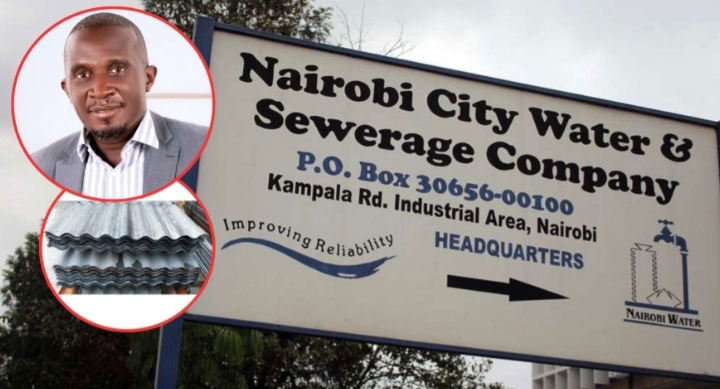A growing concern is taking shape within Nairobi’s water sector as new information reveals a quiet but damaging operation that has been draining public resources for years.
The issue sits deep inside the Nairobi Water and Sewerage Company, where items meant to support the city’s water system are allegedly being turned into private profit.
The theft has been happening slowly but consistently, making it harder for Nairobi residents to receive safe and reliable services.
According to a whistleblower, the problem is not a random loss of materials. It is an organised process involving staff who understand how the system works and how to bypass it without raising alarms.
Their account describes a network that selects, removes, and sells valuable water infrastructure components to private contractors at extremely low prices.
These items include manhole covers and step irons, which are essential for maintaining Nairobi’s water and sewer systems.
When these parts go missing, the entire network becomes weaker, repairs are delayed, and the county ends up buying replacements at a high cost.
Inside NWSC stores, the organised operation is said to run quietly. Staff responsible for receiving and securing items allegedly work together to remove them from official records.
They then transport the stolen items to private buyers who are always ready to take advantage of the cheap prices.
What makes the theft even more concerning is the large gap between the official cost of these items and the prices at which they are being sold illegally. The gap clearly shows that the crime is deliberate and coordinated.
Step irons are among the most frequently stolen items.
These pieces are used inside manholes, and losing them in large numbers weakens the safety of maintenance work.
The whistleblower claims up to 10,000 pieces disappear every year. With each step iron costing KES 650 but allegedly being sold for only KES 250, the financial loss adds up to about KES 4 million annually.
This kind of difference cannot happen by mistake. It points to people inside the system working together to make the items available to contractors who benefit from the illegal prices.
Even more worrying is the theft of manhole covers. These are high-value items, costing the company around KES 25,000 each. Yet insiders say they are being sold for as little as KES 6,000.
This translates to annual losses that could range from nearly KES 20 million to as much as KES 190 million depending on how many pieces disappear.
Apart from the financial damage, missing manhole covers put the public at risk. They leave open pits that can cause serious accidents on roads and walkways.
The pattern that emerges from the whistleblower’s report shows clear collusion. Records are altered, items are moved without proper documentation, and private contractors accept the goods without questioning the source.
For this to happen over many years, several staff members must be involved. The chain is likely strong enough that breaking it will require full commitment from the county government.
To stop these losses, Nairobi needs a serious and transparent audit of NWSC stores. All procurement, storage, and movement records must be checked.
CCTV footage and gate logs should be reviewed, and independent auditors should confirm which assets were delivered and where they ended up. Introducing random inspections, rotating staff, and using digital tracking systems can help expose gaps and prevent manipulation.
The whistleblower’s bold decision to come forward shows how urgent the situation has become. Nairobi residents deserve a water system that is safe, reliable, and protected from internal theft.
Ending this silent drain on public resources is necessary to rebuild trust and protect the city’s infrastructure for the future.





















Add Comment